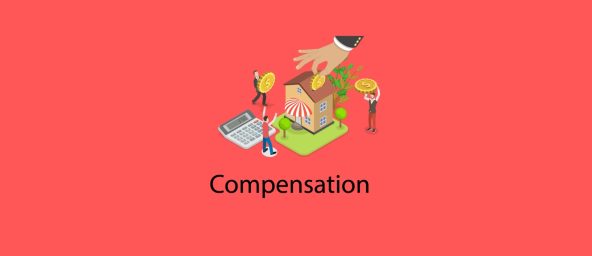
TL;DR
- Send an email for feedback after interview to show professionalism and learn.
- Wait 24–48 hours or until you get an outcome.
- Keep it short, polite, and clear.
- Adjust your follow up from interview based on your stage.
- Don’t sound pushy or repeat messages.
You just finished an interview and now you’re stuck. Pin drop silence. You’re thinking: “Did I do okay? What went wrong?” When you send an email for feedback after interview, you bridge that uncertainty gap and get real insight.
In this blog, you’ll learn exactly how to write a professional feedback request email, when to send it, the structure it should follow, plus tips and mistakes to avoid. You’ll also see sample templates and answers to common questions.
Why Request Feedback After an Interview?

Asking for feedback after an interview does more than soothe your nerves, as it gives you concrete information to improve. Many candidates never receive feedback: only about 41% actually get feedback after interviews.
Here’s why it matters:
- Growth and improvement: Understanding weak spots helps you refine your answers, polish examples, and strengthen areas you didn’t consider.
- Shows professionalism: Sending a follow-up email requesting feedback signals maturity and that you’re serious about growing.
- Keeps the door open: Even if this job didn’t work out, maintaining a positive relationship might help for future roles.
- Better candidate experience: In fact, 70% of rejected candidates say receiving detailed feedback gives them a more positive impression of the employer.
You also boost your confidence going into your next interview, because vague rejections don’t teach you much.
When Should You Send a Feedback Request Email?

Timing is tricky. You don’t want to jump in too early, but waiting too long reduces your chances of a response. Here’s a guide:
- After rejection notice: The best time is soon after the company informs you they are no longer moving forward. That’s the natural moment to ask for interview feedback questions you can reflect on.
- If no response: If it’s been 1–2 weeks since your interview and there’s been no update, a follow up email after interview no response template can include a gentle request for status + feedback.
- After second interview: Use an after second interview follow up email to express continued interest, and you may slip in a feedback request, especially if there’s silence after that round.
- Don’t wait months. The fresher their memory, the better feedback you’ll get.
Mini Quiz — “Too Early or Just Right?”
Test your timing for sending a feedback request email. Click an option to see if you’re right.
Structure of a Professional Feedback Request Email

A well-structured message increases your chance of a helpful reply. Below is a recommended layout:
Subject line
Use a clear subject line for follow up email interview or interview follow up email title. For example:
- “Feedback Request, [Your Name]”
- “Follow Up After Interview. Request for Feedback”
Greeting
Address the interviewer (or recruiter) by name:
“Hello Ms. Sara,” or “Hi Mr. Adams,”
Opening/Thank You
Begin with gratitude. E.g.:
“Thank you for the opportunity to speak with you about the [Role Name] position.”
Context Reminder
Briefly recall when and how the interview took place:
“As a reminder, we met on June 10 for the second round interview with your team.”
Feedback Request
Explain your reason for writing:
“I’d appreciate any thoughts you might share on my performance or areas I can improve. Understanding your perspective would help me grow.”
Offer to Stay in Touch
Optionally add:
“Even though I may not be selected now, I hope to stay in touch for future opportunities.”
Closing & Polite Sign-off
End with professional warmth:
“Thank you again for your time. I look forward to your insight.
Best regards,
[Your Name]
[Contact/LinkedIn if desired]”
Build Your Perfect Email
Drag the parts into the correct order. When you’re done, you’ll unlock a ready-to-copy template.
Subject: Feedback Request — [Your Name], [Role] Hello [Interviewer’s Name], Thank you for meeting with me regarding the [Role] on [Date]. I appreciated learning more about the team and the work ahead. If you’re able to share any brief feedback on my interview, I’d be grateful. It will help me improve and be a stronger fit for future opportunities. Best regards, [Your Name] [Phone] | [LinkedIn]
Example of a Professional Feedback Email

Here’s a sample you can use or adapt to your tone:
Subject: Feedback Request, [Your Name], [Position Title]
Hi [Interviewer’s Name],
I hope you’re doing well. I wanted to thank you again for taking the time to meet with me regarding the [Position Name] role on [Interview Date]. It was a pleasure learning more about the team and company culture.
While I understand that I wasn’t selected for the next stage, I’d truly appreciate any feedback you could share about my interview. I’m always looking to grow and improve, and your insights would mean a lot.
Thank you again for considering me for the opportunity. I hope our paths cross again in the future.
Warm regards,
[Your Name]
[Phone Number]
[LinkedIn Profile]
Keep it short, respectful, and positive. Recruiters and hiring managers are more likely to respond to polite, concise emails.
If you’re unsure whether your note is too formal or casual, picture how you’d write a post interview thank you email. Your tone should be similar: courteous and confident, not needy.
Tips for Writing a Feedback Request Email

Here’s how to make your email for feedback after interview stand out and get replies:
Personalize the message.
Mention something you discussed or appreciated during the interview. It shows authenticity and that you remember the interaction.
Keep the focus on growth.
Frame your request around self-improvement rather than disappointment. Example: “I’d appreciate learning how I can strengthen my future applications.”
Be patient but proactive.
If you haven’t heard back in two weeks, it’s okay to send a follow up from interview message or check in email for job once. Don’t overdo it. Just one polite reminder is enough.
Choose a clear subject line.
Good subject lines for follow up email interview include “Thank You and Feedback Request” or “Following Up After Interview for [Role Name].”
Mind your tone.
Avoid frustration, especially if it’s your second or third follow-up. Keep it professional, like any after second interview follow up email. It should be respectful and confident.
Add a short thank-you sentence at the end.
Gratitude keeps the tone light and makes you memorable. Even small touches help build a good reputation with recruiters.
Proofread before hitting send.
It sounds obvious, but typos kill credibility. Read it out loud once or twice before sending.
If you’re still unsure how to write a follow up email to a recruiter, just remember: shorter is smarter and sincerity wins every time.
Common Mistakes to Avoid

These are the blunders that silently block replies to your follow up email regarding job or a feedback request:
Sounding entitled.
Writing like the recruiter owes you a detailed response turns people off. Use phrases like “I’d appreciate your thoughts” instead of “Please explain why I wasn’t selected.”
Sending too soon.
If you haven’t waited at least a few days post-decision or haven’t heard back yet, resist the urge. That’s where when to contact after interview matters. Timing can make or break your message.
Overly long emails.
A follow up letter that reads like a novel will likely get skimmed or ignored. Keep it under 200 words.
Skipping context.
Recruiters handle hundreds of candidates. Always remind them who you are and what role you applied for.
Forgetting to thank them.
Even if you’re disappointed, your politeness is what they’ll remember. A quick thanks leaves the door open for the next opportunity.
Copy-paste templates with no personality.
You can use a follow up email after interview, no response template as a starting point, but tweak it so it sounds like you, not a chatbot.
Conclusion
If you treat your email for feedback after interview as a learning opportunity rather than a rejection response, you’ll gain more than just closure. You’ll grow.
The key is timing, tone, and clarity. Stay polite, concise, and specific. Every interaction builds your reputation, and recruiters remember candidates who show maturity and genuine curiosity.
FAQs
Click a question to read the answer. Use the buttons to expand or collapse all.




